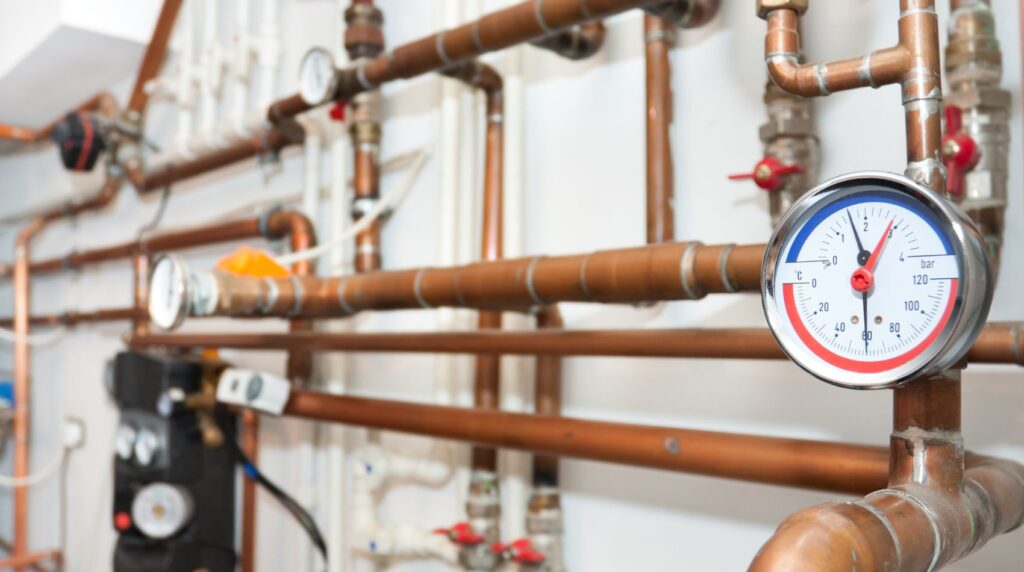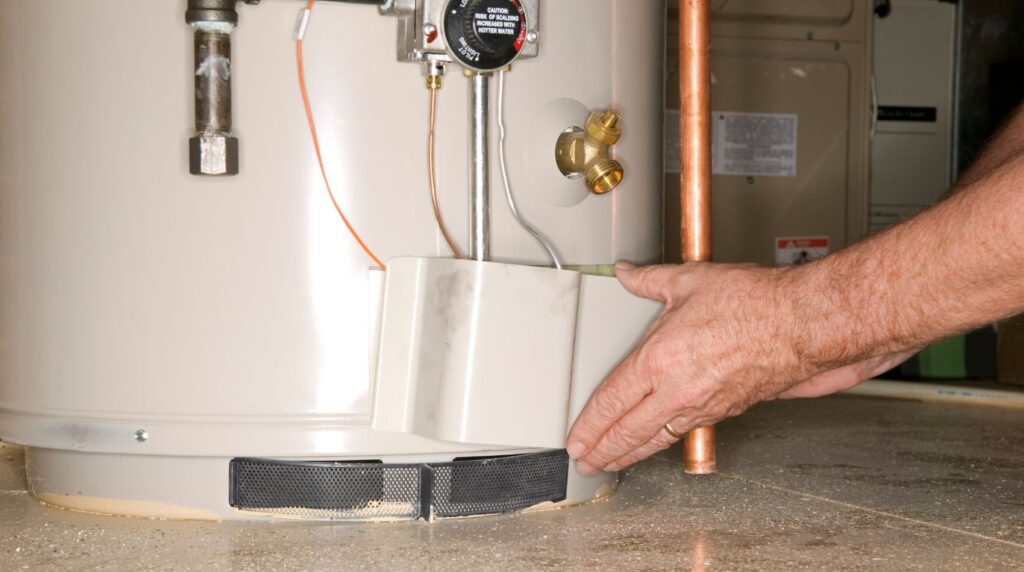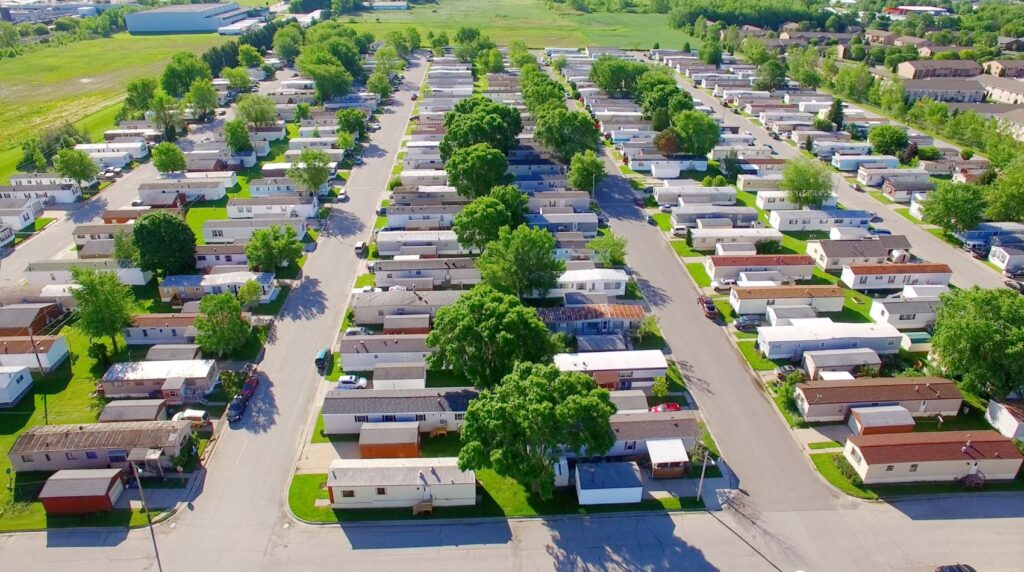Menu
Plumbing problems can be both frustrating and costly if not remedied quickly. Plumbing issues in residential homes typically arise from leaky or cracked pipes, dripping faucets, clogged drains, and sewage backups. Fortunately, regular maintenance, such as inspecting and cleaning pipes and fixtures, can help to keep leaky pipes and prevent plumbing problems before they occur.
Additionally, minor repairs like shutoff valve replacements, caulking around pipe joints exposed pipes, or replacing hose washers can stop minor issues from becoming more prominent. You can save time, energy, and money by proactively avoiding expensive plumbing problems and stressful plumbing repair emergencies at home. So where do common plumbing problems usually start? In these plumbing systems:
Plumbing problems can quickly become emergencies if not caught in time. The good news is there are plenty of warning signs you can look out for to detect potential plumbing issues before they become an emergency.
Those warning signs could be a change in water pressure, unusual water flow or noise from pipes or drains, a slow-draining sink or tub, mold and mildew in hot water, a sewer smell inside your home or shower drain, or condensation on the outside of pipes. If you notice any of these things, it’s important to contact a plumbing professional and your insurance company immediately to assess and repair the issue before it becomes a more serious emergency.

Maintaining the efficiency and longevity of your water heater is crucial for ensuring a comfortable and cost-effective living environment. As a critical component of a home’s plumbing system, proper care and timely maintenance can prevent potential malfunctions and extend the unit’s lifespan.
By regularly performing checks, recognizing signs of potential plumbing problems, and promptly addressing any issues that may arise, homeowners can significantly improve the performance of their water heaters while reducing energy consumption and utility bills.
Engaging with a professional to get expert advice and assistance in maintenance can yield substantial benefits while also securing peace of mind that your water heater is operating in optimal condition.
It is important to remember that our households’ continuous supply of hot water relies on the adequate functioning of these vital appliances, which depends on our efforts toward their preservation. Regular maintenance is necessary to avoid catastrophic plumbing problems.

Here are five tips to help you make the right decision:
Look For Professional Licensing & Insurance: Always check that any potential plumber is appropriately licensed and carries adequate insurance to protect them and you against potential liabilities or accidents.
Read Online Reviews & Testimonials: Check online reviews and social media accounts to get an unbiased look at their service and customer feedback about their quality and reliability.
Request A Detailed Quote Upfront: Ask for a detailed written quote upfront that outlines all costs associated with the project—including labor, materials, and fees—so there are no surprises along the way.
Ask About Availability & Service Turnaround Times: Make sure they can handle the job promptly and inquire if they can do emergency work should something arise suddenly.
Get References From Former Customers: Speak with former customers who have used their services before to get a better idea of their overall experience and what kind of results they achieved from working with them.

As plumbers, we understand the unique challenges of maintaining the plumbing in a mobile home. Common problem areas tend to be valves, bad waterfalls, gas leaks, and pipes that take a lot of use over time and can break or corrode.
To ensure your mobile home’s sewer system and whole plumbing system are in good condition, it’s essential to inspect visually under the house for any potential leaks periodically to keep them from becoming more significant problems.
Although it can be tempting to do DIY repair work, I recommend calling a professional for this job if you are unsure what you are doing – mistakes can cause costly damage to the foundation of your mobile home.
By following these tips, homeowners can feel confident that they are making an informed decision when selecting a trustworthy plumbing service provider.
We hope this article gives you some confidence about your home’s plumbing and how to choose the right professional to help you with a plumbing crisis. Problems can range from minor inconveniences to major disasters, depending on the severity of the issue.
By having a basic understanding of how plumbing works and what potential issues may arise in a home, homeowners can be better equipped to handle any plumbing problem that comes their way.
Taking steps such as hiring a licensed plumber for more advanced tasks, using appropriate materials, proper tools, and fittings for DIY projects, and being proactive about recognizing any signs of trouble are all helpful ways to prevent a plumbing emergency or disaster before it happens. Happy Plumbing!
Are you located in Hoover, Alabama, and having drain issues? This article is just for you.
If you live in a manufactured home, you may not initially be aware of the plumbing differences from a site-built home. Because mobile homes are not permanent structures, the plumbing entering and leaving the house has a distinctive design. Everything from the materials to the location of the pipes and drain venting has different orientations compared to site-built homes.
The materials in manufactured homes often are innovative in the plumbing world. Homebuilders like to use new plumbing in mobile homes to see how they function. For example, builders first used PEX piping in manufactured homes before it became common in site-built home designs. Today, this pipe material is a standard in the industry.
Site-built homes typically use copper for incoming water, but in manufactured homes, this is not the standard. CPVC and PEX are more common in mobile home supply lines. Both work for hot and cold water lines. These materials may last as long as the incoming copper lines used for site-built homes. The plastic pipes are cheaper and easier to install. PVC — polyvinyl chloride — pipe may be used for drain lines and some supply lines.
Some manufactured homes built between the 1970s and 1990s had polybutylene pipe installed. Bleach used to sanitize the water supply would cause the material to wear out and leak. This type of pipe is no longer available. If you have it in your mobile home, consider repiping to replace it. During negotiations, request the owner to repipe the house at their expense before you move in.
Drain pipes carry waste water out of your home. Materials typically used for waste lines include PVC, chromed brass or cast iron. PVC is likely to be the chosen material because experts who know how to plumb a mobile home find it easier to install. It also costs less than metal pipes. These materials are not very different from those used in site-built homes, though, making drain pipes a common factor between the two.
Yes. Cold temperatures can cause the metal on your water heater to expand and contract, potentially causing damage, and eventually leaks. This could happen more often if you have an older water heater or if the unit is placed in an unheated area of the home. However, there are other things that could factor in, such as how well your unit has been maintained and the overall quality of your water. For instance, the more sediment in your water, the harder your water heater will need to work. drain cleaning
You should inspect your water heater throughout the year, not just during the winter. Look for any bending, protruding or cracks in the metal tank and other components. You also can do some troubleshooting. Have you noticed the water taking an unusually long time to get hot? Or does the hot water supply run out too fast? This could be the beginning of a bigger issue. drain cleaning
Water damage due to broken pipes is one of the most common homeowner’s insurance claims. Most household water damage is caused by plumbing leaks or appliance failure such as toilet flooding, sewer backups, burst pipes and similar issues. Incidents that are sudden and unpredictable are usually covered by homeowner insurance policies, but each policy is different and some require special riders for water damage. Your agent can tell you for certain if you have coverage. drain cleaning
Copper has been the longtime standard for plumbing. It has been around a long time and we know the material is durable and reliable for water pipes. However, plastic piping (PEX) works well because it is made of a flexible material. It is also resistant to cold temperatures and has fewer joints, so it may be less costly to install. drain cleaning
Every sink installation begins with the right sized opening. This may mean that your current vanity’s opening will need to be expanded. Once you get the opening in your vanity to the proper size, insert the sink. Afterward, crawl under the sink with a flashlight and begin installing the locknuts – starting with the center locks first, then front and back, and side to side, installing the corner nuts last. Once you get it tightened down, you can run a bead of latex caulking around the edge of the sink. To clean up excess caulk, use a water and sponge. drain cleaning
You probably have a clogged drain and need to schedule a professional cleaning. These lines get clogged with grease, food particles and soap scum. Eventually the buildup is so thick that the internal diameter of the drain is reduced and water cannot pass quickly through the pipe. Regular treatment with an enzyme-type drain maintenance product, will eat away the grease and biological scum inside the pipes and extend the time between cleanings. drain cleaning
Every clog is different, just like every home is different. But you can prevent clogs in your drains by taking a number of preventive measures. Whether your house is older or modern, sooner or later you will find yourself with clogged drains on your hands.
Here are some great ways to prevent clogged pipes:
There are a lot of basic steps you can take to prevent clogs in your drains, most of which start with making sure the right things are going down the drainpipes. If you’re concerned about your sewage system, it may be beneficial to consult a professional to assess your plumbing. Innovative Plumbing Solutions is here for you. Simply call (205)-640-0200
Generally when you have a foul odor when flushing the toilet it means the toilet wax ring is not sealed to the toilet or the floor.
Whenever you put water into a drain, it first has to push the air away. If the wax ring is not sealed, it will simply push it between the floor and the bottom of the toilet into the room, instead of down the pipe. Because both air and water take up space in the pipe, you can’t put the water in unless you move the air out.
Typically we send it up the main vent of the house and out the roof, but if the roof vent is blocked, then there is no place for the air to go. To eliminate the bathroom odor, you should reseal the toilet to the floor and the clear the main vent of debris. Plumber near me in hoover
For hard and soft water explained simply…Hard water contains a high concentration of dissolved minerals, like calcium and magnesium. In its pure form, water does not contain these minerals and is naturally soft. But as it passes through the ground and rocks such as limestone, it picks up those hard water minerals.
Soft water contains little to no extra elements. This can occur naturally, or soft water can be produced with water treatment equipment that removes the hard elements. Plumber near me in hoover
The minerals in hard water leave behind scale. This can require repeated cleaning of surfaces that come into contact with hard water. The deposits build up inside pipes and appliances and can reduce efficiency. Severe buildup can cause the need to have certain types of water supply pipes replaced prematurely. Although it can be troublesome, scale from hard water is NOT harmful to your health if consumed. Plumber near me in hoover
Owning a home means that it’s likely you’ve made DIY repairs in the past and will consider doing so next time repairs need to be made. Thanks to countless Internet how-to’s and blogs, DIY plumbing is easier than ever. However, not every job can be done yourself. You may not have the time or know-how to complete a job, or the job may be too big for one person. It’s important to know when to hire a plumber and when to get your hands dirty.
The main thing to consider is cost. Plumbers charge by the hour or by the job, and the cost of labor is often the biggest expense, not materials. However, every job has different costs associated with it. For example, replacing a gasket in a faucet will be less expensive than purchasing and replacing the entire fixture. It will usually cost less to do the project yourself, as long as you know what you’re doing. However, mistakes sometimes cost time and money to correct. If you’re unsure of how to accomplish the job, the best option may be to hire a plumber.
Plumbers have training and experience to ensure that the job is done correctly. They know the local codes, obtain permits and get inspections as needed to protect you and your home. They have the proper tools for each task and are well equipped to handle any plumbing problem.
We recommend calling us at (205)-640-0200 for all types of plumbing repair needs—big and small. As always, we’ll be here with lots of tips on how to do the best DIY plumbing job.
If you have red stains in your sinks, or your water has an unpleasant taste and smell, there could be a few reasons. Generally, the primary cause to yellow water is rust. Small amounts of iron and oxygen is a normal occurrence for water system, but when these are combined and in larger quantities you will have yellow water. This will result in yellow bath water as well as yellow water from faucets.
WHAT CAUSES WATER TO LOOK YELLOW?
“If you have red stains in your sinks, or your water has an unpleasant taste and smell, there could be a few reasons. Generally, the primary cause to yellow water is rust. Small amounts of iron and oxygen is a normal occurrence for water system, but when these are combined and in larger quantities you will have yellow water. This will result in yellow bath water as well as yellow water from faucets.
IS YELLOW WATER SAFE TO DRINK AND USE?
As yellow water is caused by higher concentrations of iron it is often safe to drink. However, it may taste unpleasant and you should contact your local plumber before the issue persists.
CALL THE PLUMBING PROFESSIONALS AT INNOVATIVE PLUMBING SOLUTIONS
It is always best to call a professional plumber like Innovative Plumbing Solutions for a proper inspection to diagnose a problem such as yellow water that could lead to a health risk or property damage.
Jetting equipment cleans sewer lines better than snakes. Jetters use varying degrees of water pressure to cut through grease and other debris that build up in drain pipes, especially in restaurants, and draw it back where it can be vacuumed out, providing a more thorough cleaning. Enzyme-type sewer and drain cleaning and maintenance products can be automatically injected into the line to help keep grease and food waste from building up in the line. The enzyme eats the grease and turns it into a liquid, which washes away with water, preventing most backups.
Are you in need of Innovative Plumbing Solutions? Our Birmingham, Alabama-based plumbers are available to serve you. Have a plumbing emergency? Our team is available 24/7 to promptly address any concerns that you have. Contact us today!
Digital Marketing & Website Design by Nation Media Design | Copyright © All rights reserved.